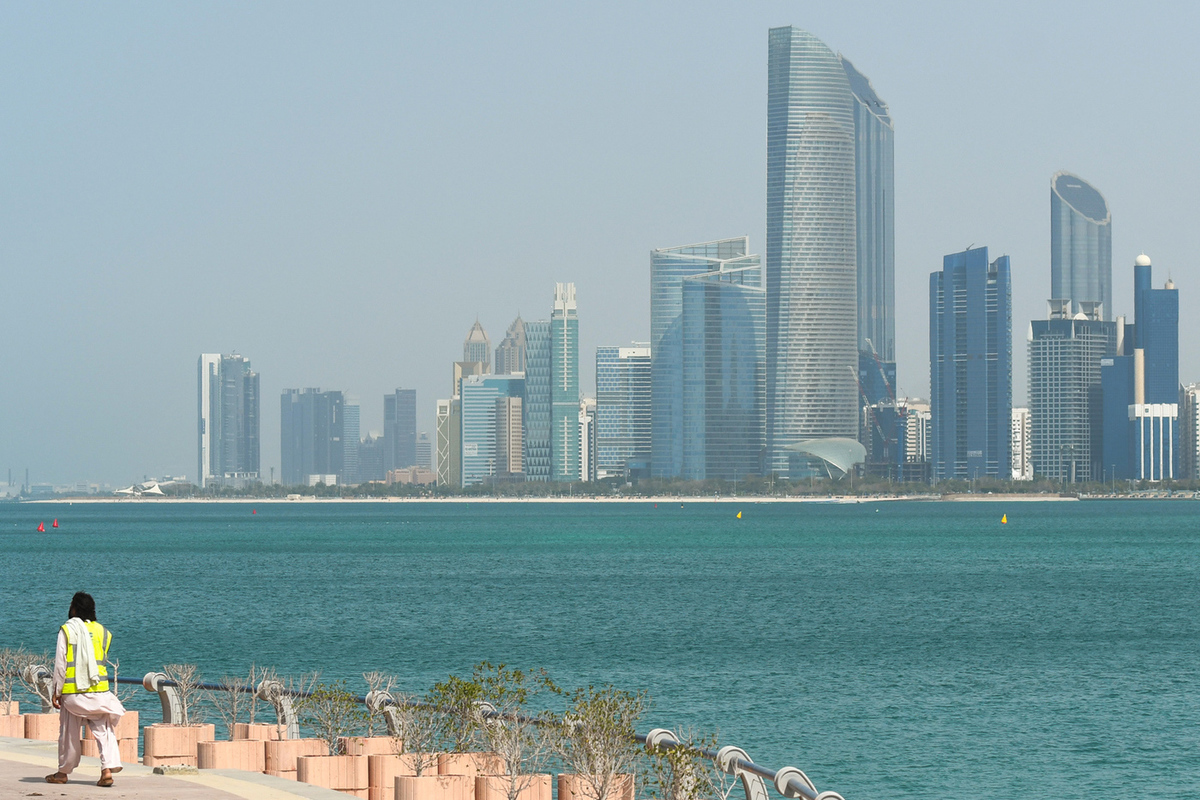Perfidy in Arabic: the banks of another friendly country refused to serve Russians
[ad_1]

Experts explained why this is happening and who else will be afraid of US sanctions
Banks of the United Arab Emirates (UAE), following their Chinese and Turkish colleagues, were afraid of the risk of secondary US sanctions and began to limit work with clients from Russia. MK found out from experts how the refusal to serve Russians in UAE banks will affect the economy of our country and the wallets of our compatriots.
Problems with conducting transactions with Russian counterparties have intensified in the last month and a half due to the signing at the end of December by US President Joe Biden of a decree regulating the disconnection of foreign banks from the American system and the blocking of their accounts if they directly or indirectly contribute to the Russian military industry. The American authorities may prohibit a bank suspected of collaborating with our country from opening correspondent accounts, as well as block its property in the United States.
Immediately after the document was signed, problems began for our citizens and businesses. In January, trade ties between Russia and Turkey, a country that was considered one of the friendly ones, were under threat, given the abundance of bilateral contracts, ranging from the creation of a gas hub to the Akkuyu nuclear power plant under construction. To resolve the problems with payments and transfers that Turkish banks had with their Russian partners due to pressure from the United States and the European Union, Ankara and Moscow even seemed to have begun negotiations on the creation of a joint Russian-Turkish bank, insensitive to sanctions, since it would not have accounts in dollars and euros and conducted transactions only in local currencies. However, no specifics were given regarding this project and the question of whether it will be implemented still remains open.
In February, large Chinese banks began to refuse to make Russian payments, also citing fear of the introduction of secondary sanctions from the United States. In particular, the main Chinese bank for our importers, Zhejiang Chouzhou Commercial, stopped all payments for this reason. Other large Chinese banks – Bank of China, China Construction Bank and Industrial and Commercial Bank of China – have also tightened their requirements for Russians. To solve this problem, it even took negotiations at the highest level: on February 8, Russian President Vladimir Putin discussed this situation by phone with Chinese President Xi Jinping, and it seemed that an understanding was even reached with a “dear friend,” as the head of our state called the Chinese leader.
And now Emirati banks seem to be joining the list of those who refuse to cooperate with the Russians, also protecting their business. “Russia is not one of the main trading partners of the UAE, and those are China, India, Saudi Arabia, Japan, the USA and Germany,” Maxim Osadchiy, head of the analytical department of BKF Bank, explains the behavior of the Arab partners. — Moreover, for the UAE, Russia is a competitor in the oil market. The threat of secondary sanctions is more significant for UAE banks than the profit from servicing Russian partners.”
But there is no doubt that the banks of Belarus, Iran, Syria and North Korea will not refuse cooperation in Russia. According to the associate professor of the department of global financial markets and fintech of the Russian Economic University. G.V. Plekhanov Ilyas Zaripov, the susceptibility of foreign banks to the threat of secondary sanctions often depends on the position of their key shareholders, as well as on the attitude of the country’s political leadership towards the United States. If the state has a generally anti-American and pro-Russian position, then long-term business relations can be planned.
According to Alexander Razuvaev, a member of the supervisory board of the Guild of Financial Analysts and Risk Managers, Kazakhstan and Kyrgyzstan, that is, those countries that have become hubs for “gray” imports into our country, may be next on the list of “frightened by American sanctions.” But Russia, in principle, is ready for such a scenario. The main reason why payment problems will have to be resolved is because there is a greater mutual benefit. “All interested parties have an understanding that it will still not be possible to completely ban trade with Russia: issues regarding alternative movement of funds will be resolved,” says financial expert Alexey Krichevsky. Despite the development of the tourism industry and new sources of budget replenishment, independent of oil and gas, the UAE sheikhs understand that it is now pointless to quarrel with our country, especially after joining BRICS. It is even possible that this hype is being created artificially to attract the attention of Western countries: they say, look, we are supposedly on your side, the expert suggested.
If we talk about the consequences for the wallets of Russians from this whole situation, then, according to Maxim Osadchy, the demand for UAE dirhams from compatriots may decrease, and our banks may stop opening deposits in this currency. Well, since most tourists from Russia already use cash or foreign bank accounts for purchases in the UAE, the situation will not affect them globally.
[ad_2]
Source link






